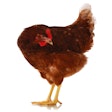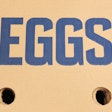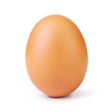
Nevada governor Stephen Sisolak has signed into a law a ban on caged egg production by the end of 2024, the Humane Society of the United States (HSUS) announced June 8.
The law requires all eggs sold in Nevada to be from cage-free facilities, no matter where they were produced, and prohibits producers with more than 3,000 hens to confine any egg-laying chickens in enclosures less than one square foot of usable space. It also mandates enrichment, like perches, dust-bathing areas and nests.
The new requirements apply to female chickens, turkeys, ducks, geese and guinea fowl.
Assemblyman Howard Watts (D-Las Vegas) supported bill AB399, which was introduced on March 25, 2021. The law takes effect on July 1, 2022.
“Unfortunately, over recent decades, as we went in the direction of industrialization, we saw the emergence of a model that in the name of efficiency resulted in some pretty horrific conditions,” Watts told the Assembly Natural Resources Committee in April. “For anyone who's seen a chicken, imagine when confined to a space that small, it’s pretty difficult.”
“I’m grateful for Assemblyman Howard Watts for sponsoring the bill and speaking out so passionately for its passage. And I’m thankful for Governor Sisolak signing this bi-partisan legislation into law, guaranteeing millions of chickens will never have to suffer in a cage,” Josh Balk, vice president of farm animal protection for HSUS, said in a statement.
There are no commercial egg producers located in Nevada, instead sourcing eggs from nearby states.
"United Egg Producers (UEP) has remained neutral on state legislative proposals related to hen housing. The decision-making of our farmer-members regarding hen housing and transitions to cage-free will be done in close collaboration with their customers and with consideration of hen welfare, economic and market impacts. A clear aligned direction for the preservation and growth of the egg industry, as set forth in UEP’s strategic plan, is our firm priority. UEP will support its members through these conversations to assure egg production remains nimble in adjusting to changes in the business, political and social environment and promotes a stable operating climate conducive to the future success of U.S. egg producers," Chad Gregory, President and CEO, UEP, shared in an exclusive statement to WATTPoultry.
Nevada is the ninth state to pass legislation on cage-free housing, joining Utah, Colorado, Michigan, Washington, Oregon, California, Massachusetts and Rhode Island.
Animal rights groups focus on cage-free transition
The HSUS has focused on the transition to cage-free eggs in recent years. In April, the animal rights organization pressured IHOP and its parent company, Dine Brands, to expedite their transition to sourcing only eggs from cage-free hens.
According to an email from HSUS staff member Sarah Schweig, IHOP “has made only minimal progress, with its website stating that only 5.2% of all the eggs it uses come from cage-free chickens. That’s despite the widespread availability of cage-free eggs and many companies already using, or being well on their way to using 100% cage-free eggs.”
This assertion contradicts a 2020 statement from Gregory and UEP. At the time, he explained that just to meet the needs of cage-free commitments of U.S. grocery stores, the industry will need to have 225 million layers in cage-free systems by 2025, and of that, 171.6 million layers are needed just to meet the needs of grocery stores.
“That will cost egg farmers and egg companies between 10 and 11 billion dollars. Now they have less than five years to do that. … The cost to do it, and the amount of time they have to do it in is financially and logistically impossible to achieve,” he said.



















